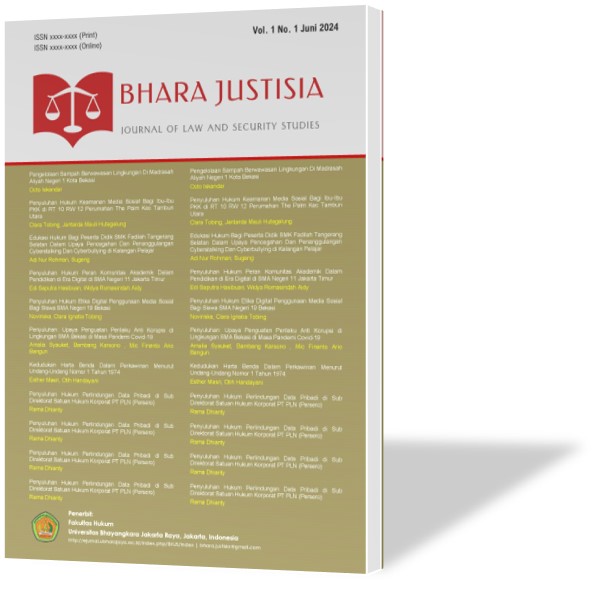SISTEM PEMIDANAAN PELAKU KEKERASAN TERHADAP ISTRI DITINJAU DARI UNDANG-UNDANG NO 23 TAHUN 2004
DOI:
https://doi.org/10.31599/6jv89j24Kata Kunci:
Kekerasan Dalam Rumah Tangga, Kekerasan, IstriAbstrak
In Indonesia, the realization of a legal household occurs after a marriage contract or marriage is in accordance with religious teachings and the law. Meanwhile, due to the rise in domestic violence cases, the government made regulations and passed Law no. 23 of 2004. The aim of this research is to determine the form of punishment for perpetrators of domestic violence and to determine the system of punishment for perpetrators of domestic violence that can provide a deterrent effect. It is hoped that the results of this research can increase insight and knowledge in the field of legal theory and specifically help understanding the domestic violence criminal system. In the research conducted by the author, the research approach used in this research is the Legislative Approach. This type of research uses normative juridical methods. Normative legal research is usually only a document study, that is, it uses legal source materials in the form of statutory regulations, decisions/decrees, agreements, legal theory, and scholarly opinions. Data analysis was carried out normatively qualitatively, namely, a method for obtaining a brief overview of problems that is not based on studies that are tested against legal norms and rules relating to the problems that will be discussed in this research. The results of this research show that the form of punishment in cases of domestic violence can be imprisonment and fines. The criminal system for domestic violence can be dualistic, plea bargaining, double track system.
Unduhan
Diterbitkan
Terbitan
Bagian
Lisensi
Hak Cipta (c) 2025 Aisyah Viran.A, Anggreany Haryani Putri, Ahmad (Author)

Artikel ini berlisensi Creative Commons Attribution 4.0 International License.









_-_Copy1.jpg)

